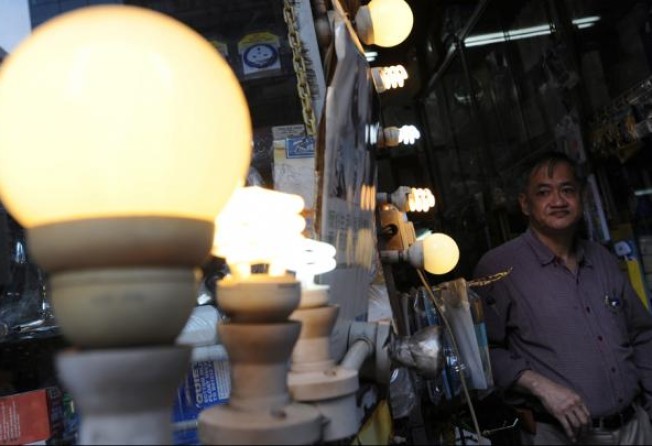Voluntary phasing out of incandescent light bulbs insufficient
Amber Marie Beard welcomes moves to phase out inefficient lighting, but argues it's wrong to pile the costs onto residents and manufacturers

In our continued attempt to reduce our city's energy consumption, Hong Kong's environment minister Wong Kam-sing said last month that the government is moving forward on the phasing out of incandescent light bulbs.
After two years of discussion on the topic, the agreement takes not the form of legislation but rather of a voluntary "charter" among lighting vendors. Despite the fact that most other governments have opted for regulation in similar moves to phase out incandescent light bulbs, our environment minister said he remains "optimistic" that a voluntary charter in the private sector will work.
Compact fluorescent lamps and LEDs use less energy than an incandescent bulb and are part of the equation in creating a more energy-efficient Hong Kong. However, the effectiveness of a voluntary charter is extremely questionable.
Where is the incentive for vendors to phase it out if their competitors can continue to sell cheaper incandescent bulbs? Why would consumers buy energy-efficient bulbs, at an increased price, when the cost of energy is so cheap?
Additionally, we need to look at the impact that such a charter would have on the overall energy consumption of Hong Kong. Incandescent light bulbs are used primarily in homes and, according to a 2008 study by the government, they accounted for 900GWh of electricity consumption every year, or about 2 per cent of the total.
Besides, Hong Kong has a great number of commercial buildings and shopping centres, and a lot of exterior lighting, that don't use common incandescent bulbs. Many malls use tungsten halogen lamps, which are only marginally more efficient but are excluded in the charter as a target for substitution.
Exterior lighting in Hong Kong should also be an area of concern. Admittedly, Hong Kong's skyline at night is iconic. But it's also a glaring reminder of our city's energy gluttony, as well as a great opportunity for reductions. Although the newer buildings use LEDs on their facades and signage, there are still many in need of energy efficiency improvement.
As it currently stands, the voluntary charter, if successful, essentially pushes all the costs and responsibility of the phase-out onto Hong Kong's residents and lighting vendors, without government support.
Also, while the phase-out of incandescent light bulbs is admirable, its impact on energy reduction would be minimal.
It is a weak attempt to distract us from the obvious: the first step to reducing energy through lighting is to reduce the amount of light demanded in the first place. While building energy efficiency regulations are mandatory as of last year, are the thresholds of efficiency conducive to reducing demand for energy?
While I remain one of Hong Kong's greatest supporters of the incandescent-light-bulb phase-out, it is my hope that our government can demonstrate greater leadership through meaningful, proactive and effective regulation, rather than placing the onus of energy reduction solely on light bulb manufacturers and Hong Kong's residents.
Amber Marie Beard is senior project manager at Civic Exchange